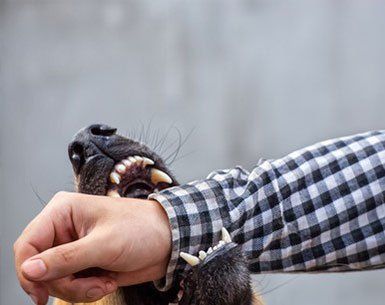What to Do After an Animal Attack

- Identify the dog or animal and try to get the dog license information.
- Get the name and address of the owner of the animal.
- Seek medical treatment.
- Report the incident to the police.
- Obtain the dog or animals inoculation history from vet if possible.
- Get the contact information of any witnesses.
- Photograph wounds, bruises and clothing.

Slide title
"I hired Mr. Radano to represent me in an automobile accident. I was worried about my badly injured knee, the huge medical bills, and the loss of work time; but they were so friendly and his staff helped me throughout the entire ordeal." - Holly M.
Button
Slide title
"They have specialized in any type of personal injury cases for over 40 years, so I knew I was in the right place." - Santia T.
Button
Slide title
"I have worked with this firm a number of times and my attorney, Mike Gaffney, has always been attentive, responsive and above all, professional. (probably why I have worked with him a number of times!) I've recommended friends to this firm and they have all reported the same experience." - David G.
Button
BROWSE OUR WEBSITE
CONTACT INFORMATION
BUSINESS HOURS
- Mon - Fri
- -
- Saturday
- Appointment Only
- Sunday
- Closed
♦ Disclaimer: The legal information presented on this website should not be construed to be formal legal advice, nor the formation of a lawyer or attorney client relationship. The Case Results should not create an unjustified expectation that similar results can be obtained for others without regard to the specific factual and legal circumstances of your case.


